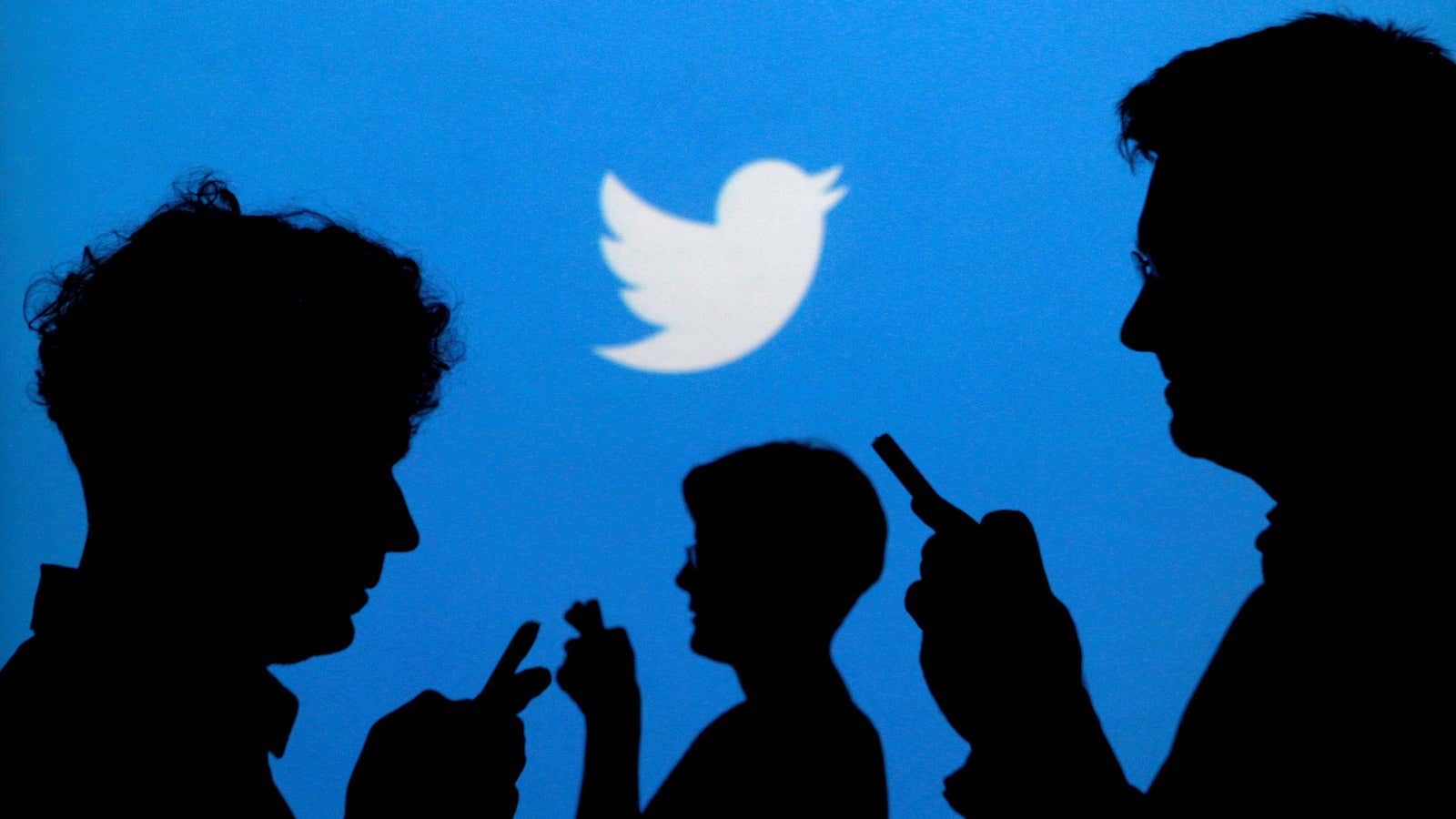Twitter loves a good fight. When Steak n’ Shake attempted to sneak an insult past Wendy’s, the hamburger chain’s infamously aggressive account came back with a characteristically fiery response:
Nearly 100,000 likes and a resulting spate of coverage of the feud prove that fans love warring corporate giants. Still, Wendy’s wasn’t satisfied to keep the battle strictly between business rivals. When a lowly personal account attempted to point out a flaw in a Wendy’s joke, the company fired back:
“The customer is always right” has long been taken on faith by many businesses. Yet on Twitter the rule has been reversed, as big corporations pick fights with individuals—to win people over. And there’s psychology to support the sassiness.
Corporations get on our bad side by merely existing
It’s hard for corporations to make people like them. Brain scans show that consumers tend to imagine that commercial organizations and governments have minds but not emotions. We implicitly sort humans and animals into the category of feelers and put corporations, along with robots, into the category of thinkers. They are perceived on the same level as evil cyborgs, entities we can only feel anger towards—not sympathy.
So when Twitter user @Murk361 tweeted that he liked to steal from Walmart, the retail giant’s comeback received ecstatic responses:
The clapback was retweeted more than 11,000 times and received 60,000 likes. None of Walmart’s subsequent tweets—predominantly friendly as they have been—have garnered even a tenth of those numbers.
When corporate accounts break out of predictable patterns to display a quick temper or outsized emotions, they become more relatable and likable. This is perhaps most evident in the fast-food industry, where giants like Taco Bell, McDonald’s, and most notoriously Wendy’s, project themselves as temperamental individuals.
In early 2017, Wendy’s Twitter made headlines by relentlessly roasting competitors and would-be customers alike.
When one user chirped at the fast-food chain to ask, “@Wendys can you find me the nearest Mcdonalds?” the company’s account replied with this picture, within minutes:
When @sophiespheonix posted, “Why do y’all eat at @wendys? Their nuggets and burgers ain’t sh*t smh,” the aggrieved company, snapped back:
Some alarmed bystanders posited that the move to burn customers must be a prank, an idea which was dispelled when a Wendy’s told Business Insider that the account had not been hacked.
The company was flaming people on purpose, with good reason: People, hardwired to hate corporations, can learn to love emotional beings.
Corporations: We’re just like you
One reason humans tend to distrust corporate entities is that it’s hard to imagine something without a body having feelings. Anthropomorphising your brand, while also demonstrating a good grasp of meme culture, is a great way to get around the problem.
Of course, “buy our cheeseburgers” become the operative words here. The logic behind mean corporate Twitter accounts is simple—they’re calculated efforts to make you believe that corporations are capable of more than just calculated efforts.
